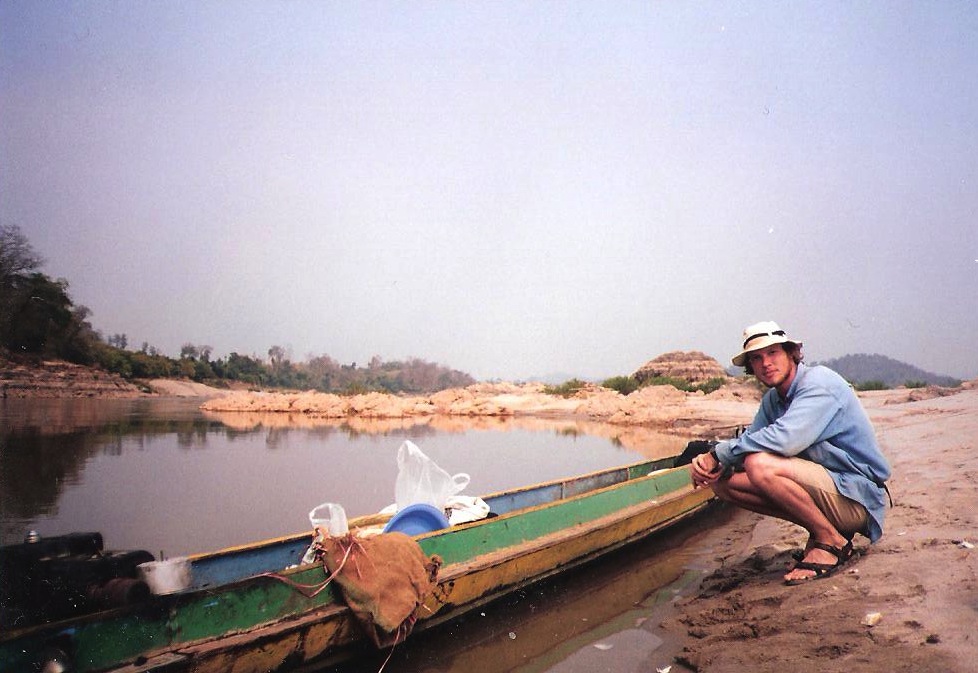Every so often university students interview me about my travel-writing career — particularly its origins — and some of these exchanges are worth publishing here, since these questions are relevant and worth making public for the sake of other aspiring writers.
The exchange below was initiated in 2018 by Marleigh Love, a creative writing student at Plymouth University in England.
In a Redditt AMA, you mentioned the failure of your first travel book that you wrote in your early 20’s. What do you consider some of the greatest pitfalls in writing that, and why?
I think inexperience took its toll – not just inexperience in terms of reporting the journey and sitting down to write it, but inexperience in not fully knowing how to tell a story, how to mold the experience to make it interesting and entertaining for the reader. Of course the process of doing all of this – of failing on that project – was essential, since I feel like I learned from my mistakes. I think this was key, since there are things you learn to do not by studying them or thinking about them, but by doing them – by bashing your head up against the challenges of actual writing and reporting and storytelling.
In the post ‘How My Travel Writing Career Got Started’, you mentioned moving to Korea in your mid-twenties, and how that helped you become a better traveler. Why did you specifically choose Korea? Why do you feel it is important to immerse yourself in your surroundings in order to write successfully?
I went to Korea because I had some old university friends who were already there doing it, teaching in Korea for a few years. They helped me get my first job in Pusan in 1996. What Korea taught me is the importance of culture, and the importance of going slow and immersing yourself in a place. You might not understand the place totally, but the immersive pace does give you a sense for what you can and cannot know. It gives you a frame of reference for other places, in terms of how deep you can go into a place. And it gives you instincts in general for traveling and experiencing other places.
After your initial success with Salon.com in 1999, how did this change your working life? I.e. How did that help you make a transition into your freelance career?
Simply put, Salon.com gave me a body of work that I could build on. It was a calling card for other projects and editors, and proof of the kind of work I could do. I still use these stories as work samples, and many of them ended up in my second book, Marco Polo Didn’t Go There. Salon.com was, at the time, a well-respected venue for travel writing – but as much as the reputation and platform, it was important to simply have a place to showcase my work. Even if, say, you’re just writing for a personal blog, outstanding work counts for as much as venue-reputation when building a career that goes on to other venues.
Currently in your career, how would you describe the realities of being a travel writer?
Ever-changing. I feel like the travel-writing landscape has always been in flux, for the entirety of the 20 years I’ve been involved with it. You have to be flexible, keep getting travel experiences, keep writing and exploring – and have a sense for where stories are being published. Travel essays are still the core of what I do, but I’ve done lots of other travel content over the years – from videos and TV to blogs and podcasting. You have to be nimble if you want to do this as a career.
I’m in my second year of university and (if all goes well – which it rarely does in life) aspire to be a travel writer. Unfortunately, due to work and university commitments, it is hard to find the time to travel. What advice would you give to someone like me, just starting out?
Find a way to make travel happen, even if it means waiting a few years – even if it means working (as I did) outside the writing profession and making a living as a teacher or laborer overseas. The accumulated expertise in travel and overseas experience counts for a lot. Again, there’s no huge rush – take your time, meet your current commitments, and then start to accumulate travel experience. I traveled for years before I ever got a decent travel-writing byline – but there were other ways to make money, and once I started publishing travel stories it was easy to keep traveling and keep writing and publishing. So be patient, but find ways to get out there. And remember that the quality of the writing is what counts in the end.

